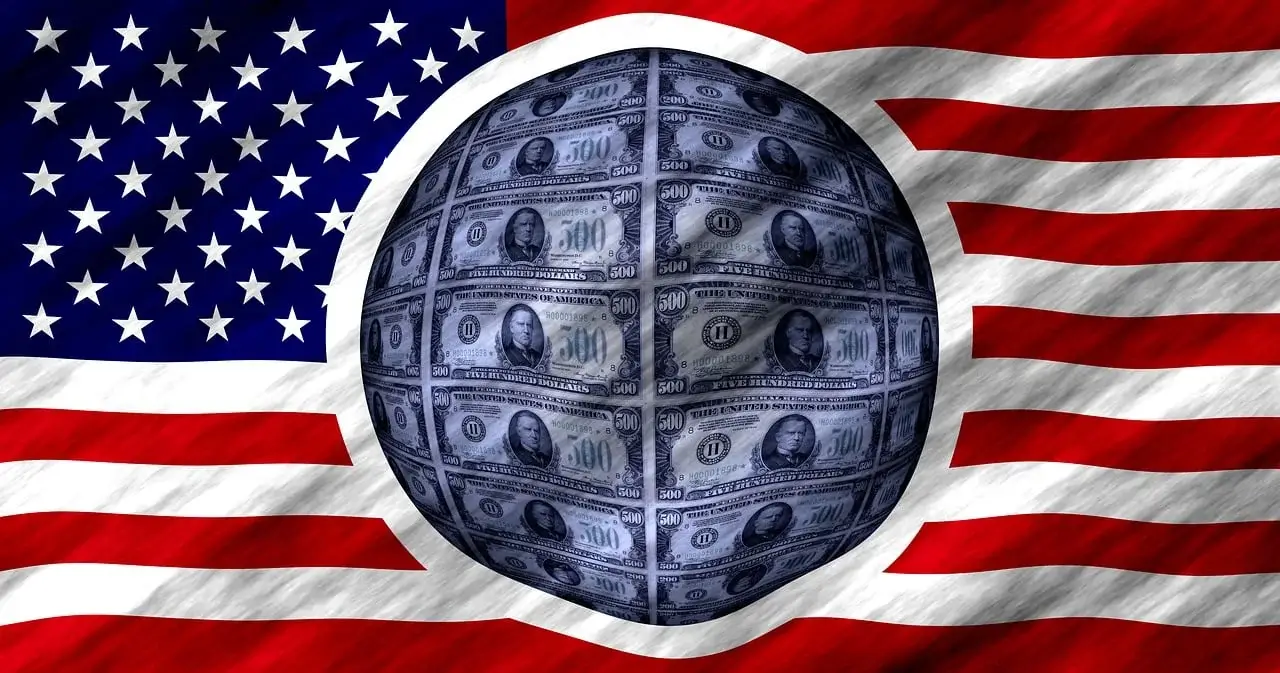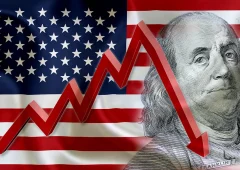JUST IN: Inflation Data Released – Here is What You Should Know
11.07.2024 15:30 1 min. read Alexander Stefanov
One of the most important data points that will shape future Federal Reserve interest rate policy was just released - the CPI.
Overall inflation in June fell to 3% year over year, lower than the expectations (expectations were for 3.1%) – a slowdown from the 3.3% annual pace set in May, with no MoM changes.
The core CPI inflation, which excludes volatile food and energy prices, is seen at 3.3% year over year, while the monthly core CPI fell by 0.1%.
The applications for unemployment benefits were announced at 222,000 – down from the previous 238,000.
Federal Reserve Chairman Jerome Powell presented the Semi-Annual Monetary Policy Report and testified before US Congress and the House Committee on Financial Services. Powell emphasized that they are not considering a policy rate cut until they are confident inflation is heading sustainably towards 2%.
Regarding the job market, Powell acknowledged that recent data indicate a significant cooling in employment conditions.
Despite Powell’s remarks, there was little impact on market expectations for a Fed rate cut in September. According to the CME FedWatch Tool, the probability of the Fed maintaining the policy rate in September remains around 26%, virtually unchanged from before Powell’s statements.
June’s CPI data reveals a good probability for September rate cuts, which could potentially boost market confidence.
-
1
Billionaire Slams Meme Stock Hype and Sounds Alarm on U.S. Fiscal Health
15.06.2025 18:00 2 min. read -
2
Robert Kiyosaki Predicts 2025 “Super-Crash,” Urges Hoarding Gold, Silver, and Bitcoin
23.06.2025 13:31 2 min. read -
3
Billionaire Investor Sees Dollar Crash If Key Support Breaks
18.06.2025 15:00 1 min. read -
4
Nassim Taleb Says Global Trust Is Shifting from the Dollar to Gold
22.06.2025 17:00 1 min. read -
5
Geopolitical Shockwaves Hit Ethereum Hard While Bitcoin Stays Resilient
22.06.2025 16:21 1 min. read
Robert Kiyosaki Predicts When The Price of Silver Will Explode
Robert Kiyosaki, author of Rich Dad Poor Dad, has issued a bold prediction on silver, calling it the “best asymmetric buy” currently available.
U.S. PCE Inflation Rises for First Time Since February, Fed Rate Cut Likely Delayed
Fresh data on Personal Consumption Expenditures (PCE) — the Federal Reserve’s preferred inflation gauge — shows inflation ticked higher in May, potentially delaying the long-awaited Fed rate cut into September or later.
Trump Targets Powell as Fed Holds Rates: Who Could Replace Him?
Federal Reserve Chair Jerome Powell is once again under fire, this time facing renewed criticism from Donald Trump over the Fed’s decision to hold interest rates steady in June.
U.S. National Debt Surge Could Trigger a Major Crisis, Says Ray Dalio
Billionaire investor Ray Dalio has sounded the alarm over America’s soaring national debt, warning of a looming economic crisis if no action is taken.
-
1
Billionaire Slams Meme Stock Hype and Sounds Alarm on U.S. Fiscal Health
15.06.2025 18:00 2 min. read -
2
Robert Kiyosaki Predicts 2025 “Super-Crash,” Urges Hoarding Gold, Silver, and Bitcoin
23.06.2025 13:31 2 min. read -
3
Billionaire Investor Sees Dollar Crash If Key Support Breaks
18.06.2025 15:00 1 min. read -
4
Nassim Taleb Says Global Trust Is Shifting from the Dollar to Gold
22.06.2025 17:00 1 min. read -
5
Geopolitical Shockwaves Hit Ethereum Hard While Bitcoin Stays Resilient
22.06.2025 16:21 1 min. read


